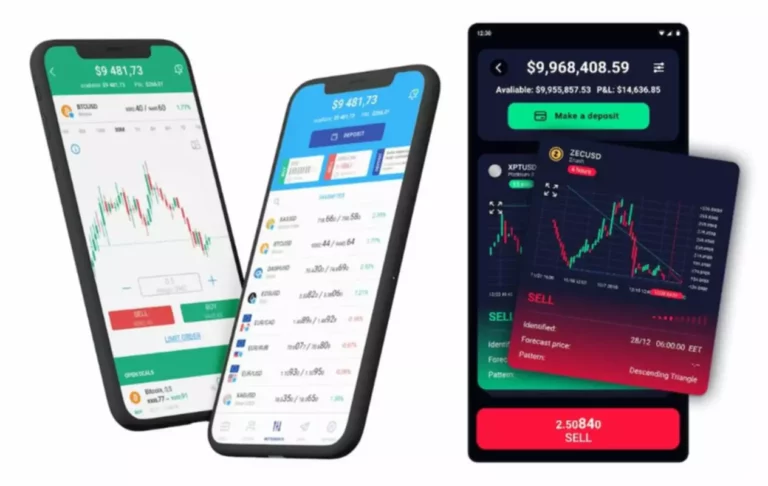Exploring the World of Forex and Crypto Liquidity Providers
A core liquidity provider is an intermediary that trades significant quantities of assets to help ensure that market participants can consistently buy and sell assets when they wish. Liquidity providers perform important functions in the market such as encouraging price stability, limiting volatility, reducing spreads, and making trading more cost-effective. Banks, financial institutions, and trading firms are key players in providing liquidity to different parts of the financial markets. In conclusion, a liquidity provider forex is a financial institution or organization that provides liquidity for forex trading. LPs offer deep liquidity pools, advanced trading algorithms, and risk management tools to ensure that traders can access the best prices and execution speeds. They also offer a wide range of trading platforms and tools, making it easier for traders to execute different trading strategies and styles.

Decentralized cryptocurrency systems need to hold assets in reserve to enable their users to buy and sell digital tokens in real time. In some cases, users can become crypto liquidity providers, collecting a part of the transaction fees as a reward for contributing liquidity to the system. A bank, financial institution, or trading firm may act as a core liquidity provider.
Who Are Forex Liquidity Providers, And How Do They Work?
This is particularly important during periods of high volatility when sudden market movements can result in substantial slippage if there is insufficient liquidity. Banks are also liquidity providers in the forex market as they buy and sell currencies to meet the demand of their clients. They provide access to a large pool of liquidity, especially for major currency pairs.
There are a lot of providers out there, and not all of them are created equal. When selecting a provider, it is essential to ensure that they have a good reputation and are known for providing high-quality services. You should first visit an online forum and read what others have to say regarding the provider.
Moreover, clients can also customize the slippage percentage within the value set by the platform operator. And if your flow becomes the cause of losing money for a provider, there are several options for how things will develop, each of which will prove unpleasant for your business in one way or another. Advanced Markets (Bermuda) Ltd is a limited liability company incorporated in Bermuda under registration number and is not required to hold any financial services license in Bermuda to offer its products and services. Market makers are often criticized for manipulating prices or creating artificial spreads, but they are still an important part of the forex market.
At its heart, FX liquidity is about how swiftly and efficiently a currency can be bought or sold without causing substantial price swings. This level of fluidity in the foreign exchange market is made possible thanks to a wide array of participants, each contributing to the overall liquidity of the market. Market efficiency and its participants’ success depend on a group of crucial actors known as liquidity providers.
Understanding Forex Charts: A Beginner’s Guide
When selecting an LP, it’s essential to consider the breadth of its product and service offerings. It’s equally crucial to verify their reputation in the market to receive smooth and healthy services. In the not-too-distant past, LP analysts had to examine the market conditions manually. Today, various tech solutions, including data analytics, data science and AI, have alleviated this heavy burden from market experts. These handy tools have the ability to convert millions of data points into understandable charts, trends, and industry insights.
- This makes them critical for the smooth functioning of markets.A wide selection of trading platform providers offer bulk integration with LPs.
- In the forex market, the term “market maker” can refer to both a company that makes markets in currency pairs, as well as to an individual trader working at such a company who performs this function on its behalf.
- The level of competition among liquidity providers directly influences their pricing and services.
- ECN, or Electronic Communication Network, is a model that bundles together the largest liquidity providers, or Tier 1 providers mentioned above.
They provide liquidity and ensure that traders can execute their trades quickly and at competitive prices. Understanding the role of liquidity providers is important for anyone who wants to trade forex successfully. Liquidity providers also play a crucial role in determining the spreads offered in the forex market. Spreads refer to the difference between the bid and ask prices of a currency pair, and they represent the cost of trading. Liquidity providers strive to offer tight spreads to attract traders and remain competitive in the market. By narrowing the spreads, they provide traders with more favorable pricing and reduce their trading costs.
Underwriting Initial Public Offerings
Liquidity providers are important in forex hedge strategies because they ensure that traders can execute their trades smoothly and efficiently. Without liquidity providers, the forex market would be illiquid, making it difficult for traders to buy and sell currency pairs. In addition, liquidity providers help to reduce the bid-ask spread, which is the difference between the price at which a liquidity provider is willing to buy and sell a currency pair. Liquidity providers play a vital role in the forex market by ensuring continuous liquidity, offering tight spreads, and absorbing market orders. Their presence contributes to the overall functionality and stability of the market, allowing traders to execute trades efficiently and at competitive prices.

Today, trading digitally, without borders and intrusive third parties has become a standard practice, but ECNs and similar tech platforms have paved the way to make this happen. Straight Through Processing (STP) translates as straight-through transaction processing. It is a method of outputting clients’ orders directly to the liquidity provider forex broker liquidity provider without any intervention. In the world of trading, one of the most important elements that enable profitable transactions is the existence of a liquid market, and the forex market is no exception to this general rule. Having greater liquidity in a financial market makes transactions flow more easily and pricing more competitive.
Increase of Trading Activity
This time, we’ll look at where the liquidity in the market actually comes from, and how it’s possible for retail traders to open relatively large positions with little capital thanks to leverage. ECNs are the drivers of the tech revolution in the forex field, offering digital opportunities to trade currencies and unprecedented freedom for traders. ECNs provide various choices to eliminate geographical barriers for forex buyers and sellers. As a result, ECNs propose a much narrower difference between the bid and ask prices, letting buyers and sellers deepen their profit margins. When a Forex broker has direct access to the pool of liquidity of large providers of Tier-1, and this is ECN or interbank, such brokers are called ECN brokers. When a Forex broker has a direct connection to a large Tier 1 liquidity provider (a big bank) or to the pool of several smaller Tier 2 liquidity providers (there are some), he is called a DMA-broker (Direct Market Access).
Indirect liquidity is provided through interbank networks, where LPs can access other liquidity pools and market makers. LPs use complex algorithms to determine the best prices and execution speeds for their clients, often leveraging different liquidity pools simultaneously. This ensures that traders can access the best prices and execution speeds, even during periods of high market volatility. To provide direct liquidity, LPs must have a large pool of assets, such as currency pairs, stocks, and other financial instruments.
It is for this reason that volatility increases sharply and significant slippage may occur. Situations with profitable traders are especially dangerous for the “pseudo-brokers” with no real external liquidity described in the first https://www.xcritical.com/ section sidenote. For example, in 2015 there was a sharp movement of the Swiss franc, and some of these Forex brokers simply disappeared. The companies simply did not have the funds to pay traders, who ended up in good profits.
List of the best Liquidity Providers
Both crypto and Forex brokerages, especially with direct transaction processing (STP), try to partner with many large liquidity providers to maintain adequate liquidity and prices. Most often, the liquidity supplier is a large financial entity (such as banks) that trades financial instruments on a large scale. In other words, they dispose of such large amounts of money that market participants, when selling their assets, are likely to choose to buy from them.
For the most liquid instruments, liquidity providers are able to feed the price with absolutely minimum spreads. In the world of forex trading, liquidity is one of the most critical factors that traders consider when choosing a broker to work with. This is because liquidity determines how easily and quickly a trader can enter or exit a trade without affecting the market’s price. Liquidity providers play a vital role in ensuring that the forex market is liquid by acting as intermediaries between traders and the market. The best option for traders when choosing a liquidity provider is to select a Tier 1 liquidity provider.
Liquidity providers help to avoid this by supplying liquidity to the distinct markets and thus compensating large deals of whales in order to keep the price of financial assets stable. ECN, or Electronic Communication Network, is a model that bundles together the largest liquidity providers, or Tier 1 providers mentioned above. Generally, medium-sized brokers and their clients cannot get direct access to this network without an agreement with a major prime of prime provider that will charge commissions for its services. Liquidity Providers undeniably hold a pivotal role in the foreign exchange market. Their presence ensures the vital infusion of capital required to sustain market liquidity, reducing transaction costs for traders. Beyond this, LPs are instrumental in augmenting market transparency and mitigating market manipulation risk.
